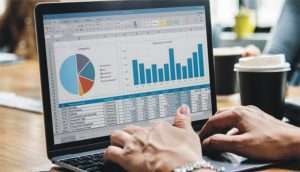February is here – which, for many, means breathing a big sigh of relief. The self-assessment tax return deadline of January 31st has now passed! However, some of us may be wondering if we’ve really been as efficient with our tax planning as we could have been – and whether next year’s return will be any easier…
When considering your financial position and conducting any kind of tax planning, one of the most important things to consider is: where does your income come from? Contrary to popular belief, you don’t have to be employed or self-employed – it’s very possible to be both at once. Moreover, within those two categories there are several options, meaning that it’s quite possible to be earning income from a variety of different sources. To avoid penalties – and to ensure you’re managing your taxes as efficiently as possible – you need to keep records of all the income you earn, whether it’s taxed at source or whether you need to declare this via a self-assessment return.
Forms of Employment
As mentioned, it’s possible – and to some, preferable – to combine various types of employment. This ‘portfolio’ style of earning has become very popular in recent years, as people move towards flexible working and favour careers that allow them to pursue several interests, rather than just one.
Here is an overview of the most common forms of employment (including details on how each is taxed):
Employed
Though the number of people registered as self-employed has increased dramatically in the last decade, the most common form of employment is to work for a company. Being ‘employed’ means that you have a contract with a business, and you earn money (and potentially enjoy other benefits) as per the terms of that contract. You are likely to be taxed at source via the PAYE (Pay As You Earn) scheme – i.e., the company will deduct tax contributions from your salary each month – and will also pay national insurance contributions and potentially contributions to a pension scheme, too. This all comes out of your pay, leaving you with a ‘take home’ figure. If you’re a temporary worker, PAYE doesn’t always present the best method of taxation, however, as it works on the basis that you’ll continue to earn at the same rate for the rest of the year (which means that – for instance – if you were to take on a high-earning role for less than a year, you could end up paying more tax than you should, and would need to claim a refund).
Self-employed/sole trader
A form of employment that is growing in popularity due to the flexibility it offers, being a sole trader means running your business on an individual basis. Freelance journalists, actors, and photographers all tend to be self-employed, which means they can work for a variety of different clients and retain personal liability for their business. Such individuals need to register with HMRC and file a self-assessment return each year. Note that it is possible to be a sole trader and carry out a number of self-employed professions – you could earn money as a freelance writer and also take on tutoring work, for instance – but all income must be declared on your tax return. Equally, you can be a self-employed individual and also take on some PAYE work – but, again, this must be declared on your tax return (you will receive a P45 or P60 from the company for which you undertook the PAYE work, and will need to enter those details on your return).
Contractor
Similar to a sole trader, a contractor looks after their own tax – however, they tend to be committed to working for one particular company. This offers a kind of middle road between self-employment in the broadest sense and being an employee; a sense of stability, as there is a special, set working relationship between contractor and client, and yet some flexibility ( a contractor tends to set their own rates and may be able to govern their working hours, for instance).
Property management
From renting out a room on AirBnB to presiding over a long-term letting, being a landlord is now a fairly common way of earning additional income. However, if you do earn income in this way, you must report it to HMRC. If you rent out a property that you personally own (but do not live in), and you earn less than £2,500 a year from this, you need only let them know; if you earn more, you need to fill out a self-assessment return on an annual basis and declare the income. The exception to this is if you rent out a room in your personal residence – if that’s the case, you’re eligible to earn up to £7,500 before you pay tax, though you must complete a tax return if you earn more than the threshold.
Moreover, if renting out properties can be seen as a ‘business’ (e.g. if you make more than £5,695 a year from it; if you own more than one property that you rent out; if you’re buying new properties to rent; and if being a landlord is your main job), you’ll also have to pay Class 2 National Insurance contributions. If you decide to sell one of your rental properties, you’ll have to pay Capital Gains Tax on any profit from the proceeds, too.
Ownership of a limited company
For some people who are running their own business, it makes sense to set up a limited company instead of being a sole trader – not least because of the potential tax benefits. If you set up a limited company, you’ll be liable to pay corporation tax (which is currently set at 19 ); however, because many company owners pay themselves a small salary and then receive the rest of their income as a dividend, the tax they pay will often be less than it would be were they to take the same amount as salary (and pay income tax instead).
Do I need to pick one form of employment and stick to it?
In a nutshell: no. HMRC has no wish to curtail your potential for financial success – so it’s quite feasible to be self-employed and employed all at the same time, and within that, have several businesses ‘on the go’! It is important, though, to ensure that you keep track of everything you’ve earned (as well as all the relevant documentation), so that you can be certain you are paying the correct amount of tax for each year. This process can be more difficult if you have lots of different revenue streams – but the positives could far outweigh the negatives!
From tax reliefs to more efficient financial management, earning money via different income streams can prove advantageous – but you are likely to need the advice of an accountant or tax adviser to ensure that you’re making the most of every available opportunity. If you’re currently juggling different forms of income, or are considering taking a new career path, the knowledgeable, experienced team at IBISS & Co can bring you up to speed with all the potential benefits and pitfalls. Contact us today for a no-obligation discussion about your plans – we’re here to help.




